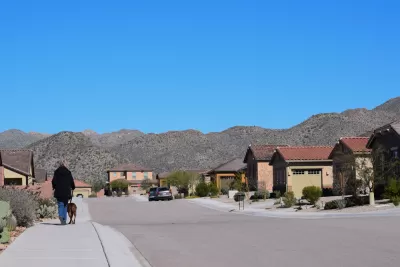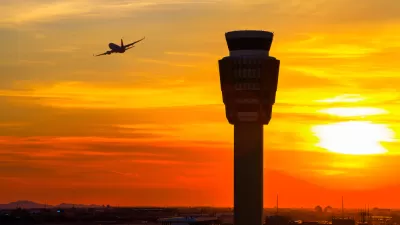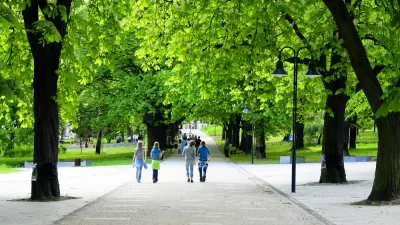Details and background of Tucson's pledge to plant one million trees by 2030.

Tucson Mayor Regina Romero in February announced a pledge to plant one million in the hot semi-arid city by 2030.
At the time, Mayor Romero joined the 1t.org US Chapter Stakeholder Council, a group of public, private and nonprofit leaders committed to the restoration of 1 trillion trees globally. Quinn McVeigh reports on the city's pledge in an article providing background and details.
"Romero, urban forestry manager Nicole Gillet, and local groups such as Tucson Clean and Beautiful, are prioritizing tree-planting in low-income communities, which are disproportionately burdened by Tucson's urban heat island effect," according to McVeigh.
A 2019 report by Climate Central found that neighborhoods in the city with predominantly Latino populations are 4 to 5 degrees Fahrenheit warmer than the average city temperature—an issue caused and exacerbated by numerous economic forces. Quinn writes: "In the desert Southwest, the extra heat that low-income neighborhoods endure often coincides with lack of air conditioning. Many households must choose between air conditioning, healthcare, and food, one University of Arizona paper said." Tucson is not alone in facing the challenge of addressing the inequities of shade and heat in U.S. urban areas.
Among the details of the plan reported in the article is a section on how Tucson will provided the water needed for the new trees to survive the ongoing, historic drought in the Southwest United States.
FULL STORY: Planting a million trees in the semi-arid desert to combat climate change

Planetizen Federal Action Tracker
A weekly monitor of how Trump’s orders and actions are impacting planners and planning in America.

Map: Where Senate Republicans Want to Sell Your Public Lands
For public land advocates, the Senate Republicans’ proposal to sell millions of acres of public land in the West is “the biggest fight of their careers.”

Restaurant Patios Were a Pandemic Win — Why Were They so Hard to Keep?
Social distancing requirements and changes in travel patterns prompted cities to pilot new uses for street and sidewalk space. Then it got complicated.

Platform Pilsner: Vancouver Transit Agency Releases... a Beer?
TransLink will receive a portion of every sale of the four-pack.

Toronto Weighs Cheaper Transit, Parking Hikes for Major Events
Special event rates would take effect during large festivals, sports games and concerts to ‘discourage driving, manage congestion and free up space for transit.”

Berlin to Consider Car-Free Zone Larger Than Manhattan
The area bound by the 22-mile Ringbahn would still allow 12 uses of a private automobile per year per person, and several other exemptions.
Urban Design for Planners 1: Software Tools
This six-course series explores essential urban design concepts using open source software and equips planners with the tools they need to participate fully in the urban design process.
Planning for Universal Design
Learn the tools for implementing Universal Design in planning regulations.
Heyer Gruel & Associates PA
JM Goldson LLC
Custer County Colorado
City of Camden Redevelopment Agency
City of Astoria
Transportation Research & Education Center (TREC) at Portland State University
Camden Redevelopment Agency
City of Claremont
Municipality of Princeton (NJ)





























